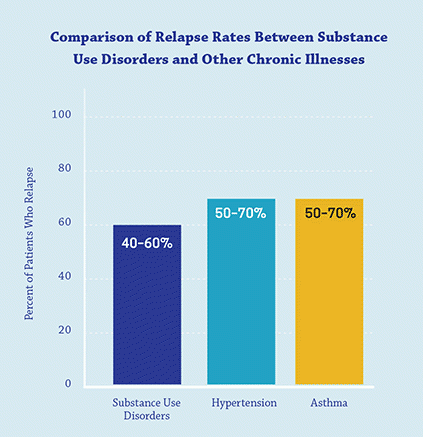Are you struggling with a drug relapse? If so, you are not alone. Drug relapse is a common problem that many people face, and it can be a difficult process to navigate. In this article, we will explore the meaning of drug relapse, its causes, and how to prevent it from happening. By understanding the complexities of drug relapse, you can make an informed decision about how to manage it and get back on the path to recovery.

What Is A Drug Relapse?
Drug relapse is when someone experiences a return to drug use after a period of abstinence. It is a common issue among those struggling with addiction, and it can be difficult to overcome. It is important to understand what constitutes a relapse, its causes, and how to prevent it.
What Constitutes a Drug Relapse?
A drug relapse is when a person resumes use of drugs after a period of abstinence. This could be a single instance of use or a pattern of drug use that continues for a period of time. It is important to note that relapse does not necessarily mean that a person has failed in their recovery, but it is a sign that they may need more help to prevent further relapse.
What Causes a Drug Relapse?
There are many factors that can contribute to drug relapse. These can include environmental triggers, such as being around people who use drugs, as well as psychological triggers, such as feelings of hopelessness or depression. Stressful life events can also be a factor, as well as the presence of underlying mental health issues.
How to Prevent a Drug Relapse
The best way to prevent a relapse is to have a strong support system. This could include friends, family, and a support group of other people in recovery. It is also important to have a plan for dealing with triggers, such as avoiding places and people associated with drug use. Additionally, engaging in healthy activities and seeking professional help can be beneficial in preventing relapse.
The Impact of a Drug Relapse
A drug relapse can have negative consequences, both physically and emotionally. Physically, it can lead to an increase in drug tolerance, which can make it more difficult to overcome addiction. Emotionally, a relapse can lead to feelings of guilt and shame, which can make it more difficult to stay sober.
Getting Help After a Drug Relapse
If someone experiences a drug relapse, it is important to seek help as soon as possible. This can include talking to a therapist or attending a support group. Additionally, it is important to recognize that relapse is a common part of recovery and to be gentle with oneself. With time, effort, and support, it is possible to overcome a relapse and stay sober.
Top 6 Frequently Asked Questions
What is a Drug Relapse?
A drug relapse occurs when a person who has been in recovery from a drug addiction regresses back to using the same or different drugs. This can be a difficult and dangerous period for both the individual and those around them.
What Causes a Drug Relapse?
Drug relapse is typically caused by a combination of factors. These factors can include psychological triggers, such as stress or anxiety, as well as environmental triggers, such as being around people who are using drugs. Other factors that could contribute to a relapse include inadequate treatment, poor coping mechanisms, lack of support, and unaddressed underlying mental health issues.
What Are the Signs of a Drug Relapse?
The signs of a drug relapse can be both physical and psychological. Signs of physical relapse include increased drug use, changes in sleeping and eating habits, and physical changes such as weight loss or gain. Psychological signs can include feelings of guilt or shame, difficulty concentrating, and changes in behavior or attitude.
How Can a Drug Relapse Be Prevented?
There are many strategies that can be employed to help prevent a drug relapse. These include getting proper treatment for any underlying mental health issues, developing good coping skills, attending support groups, creating a strong support system of family and friends, and avoiding situations and people that may trigger a relapse.
What Should Be Done if a Relapse Does Occur?
If a relapse does occur, it is important to seek professional help as soon as possible. This can include talking with a therapist or addiction specialist, attending support groups, and participating in a structured treatment program. It is important to be honest and open with those around you during this time and to seek the help and support you need.
What Are the Long-Term Effects of a Drug Relapse?
The long-term effects of a drug relapse can be serious and include physical and psychological issues. Physically, relapse can lead to serious health issues such as organ failure and overdose. Psychologically, relapse can lead to feelings of guilt, shame, and helplessness. It can also lead to a decrease in self-esteem, difficulty forming relationships, and difficulty succeeding in other areas of life.
Why Do I Relapse? | The Cycle Of Addiction
In conclusion, a drug relapse is a difficult experience that can be avoided with proper planning and care. Understanding the signs and triggers of a relapse is important to prevent it from happening. It is also important to have a strong support system to help you stay on track. With the right support, you can get back on track and stay away from drug use.
